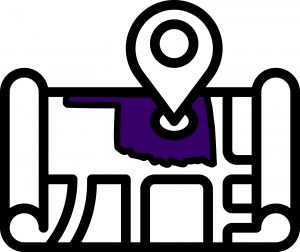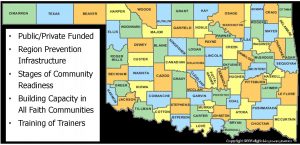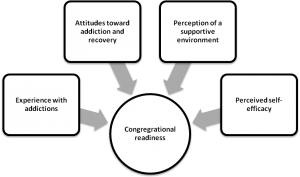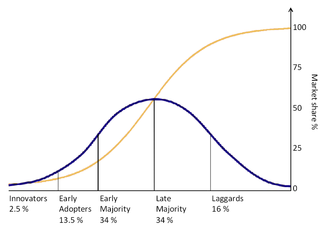
Statewide Model
(Developing Infrastructure to Serve)
Case Study: The Oklahoma Experience
INTRODUCTION
Spirituality and religion are important components for the prevention of, treatment for, and recovery from substance abuse. Although, the faith community is often under-utilized, once equipped can be one of the principal healers of addiction and strengthening of individual resiliency. The benefits are realized by creating a safe place to address and respond to affected individuals and families in need of HOPE, HELP, AND HEALING.
FAITH PARTNERS MODEL
Since its founding in1995, Faith Partners’ efforts has been to integrate faith and science through their mission to equip people of faith in the development of caring communities that promote prevention of and recovery from alcohol, drug, and other addictions. Faith Partners’ primary purpose is to educate clergy and foster congregational addiction team ministries to establish healing places to meet individuals’ and families’ needs.
Faith Partners has trained congregational teams across the nation (see map).
RESEARCH-BASED APPROACH
In January 2012, Faith Partners published a research article based on a Substance Abuse and Mental Health Service Administration (SAMHSA) Service to Science Evaluation Enhancement Grant to move their congregational team approach from a promising practice to an evidence-based intervention.
The Faith Partners model consists of a small group of trained lay people working together to provide addiction awareness, education and recovery support activities for youth and adults served by the congregation.
ODMHSAS PIONEERING PARTNERSHIP
In November 2012, the Oklahoma Department of Mental Health and Substance Abuse Services (ODMHSAS) announced a new partnership with Faith Partners. This five-year project includes a training of trainer component to help establish effective, sustainable congregational substance abuse prevention and recovery support teams statewide.
KEY FACTORS:
Public/Private Funded
This pioneering effort combined the resources of public, private, and non-profit settings to help mobilize the faith community. A powerful and often underutilized sector of the community, trained to address substance abuse throughout Oklahoma.

Regional Prevention Infrastructure
Regional Prevention Coordinators (RPC) provide services by engaging community members, local organizations, public agencies, youth and the media to change community conditions that contribute to alcohol, tobacco and other drug (ATOD) related problems. Faith Partners, in partnership with ODMHSAS, worked to utilize these entities to engage the faith community to help reduce substance abuse problems throughout Oklahoma.
Stages of Community Readiness
Faith Partners uses a multi-level approach using Theories of Change Models for individuals, families, congregations, and communities. Each person or organization comes to a level of readiness through an internal process that moves a person from knowledge and decision-making into action. The factors below are measured as indicators for congregational readiness in providing prevention and recovery support activities.

Capacity Building for All Faith Traditions
A primary reason the State of Oklahoma agreed to work with Faith Partners is its long history of working with numerous faith traditions principally Christian, Muslim, and Jewish. The Faith Partners model is adaptable to various faith traditions as it does not attempt to change one’s theology. Faith Partners offers a training process to help the participants discern their own theology and its role in responding to addiction and strengthening resiliency.
The TOT component is integral to the sustainability and growth of this initial effort across the state. We have trained ten individuals from Oklahoma who are in various stages of the educational and experiential process.
The Oklahoma Faith Partners Associate Trainers continue to work to create community readiness through their connection with the RPCs to provide training and congregational team development. Interested RPCs then provide sustainability activities, such as; networking, program development, and educational opportunities that help trained congregational teams grow into the local community prevention and recovery support efforts.
Diffusion of Innovation
Diffusion of Innovation Theory developed by E.M. Rogers, originated to explain how, over time, an idea or service gains momentum and spreads through a specific social system. The end result of this diffusion is that people, as part of a social system, adopt a new idea or behavior. There are five established adopter categories (see diagram below). The majority of the general population tends to fall in the middle categories, our project partners initial focus has been the Innovators and Early Adopters.
In Oklahoma, the first three years Faith Partners worked with the ODMHSAS and the Regional Prevention Centers infrastructure to engage interested congregations that had shown interest and readiness. In the fourth year, we have witnessed the expansion into the Early Majority population as the originally trained congregational teams in Oklahoma City, Tulsa, Shawnee, and Ponca City; has lead us to Mangum, Lawton, Muskogee, and Norman. The on-going work of the Oklahoma Faith Partners Trainers will be to help RPCs create readiness in additional communities, conduct additional congregational training series, and facilitate connection to local resources that will help sustain and grow these initial efforts.

Next Steps
In 2014, the SAMHSA’s Center for the Application of Prevention Technologies (CAPT) Southwest Resource Team provided technical assistance to Faith Partners to develop a Faith Partners Statewide Logic Model. The Logic Model captures the steps to develop a statewide effort to equip the faith communities to help decrease substance abuse in the State of Oklahoma. Faith Partners continues to build capacity within the faith community to engage in systematic, evidence-based community substance abuse prevention and recovery support efforts. Faith Partners’ goal is to expand and improve this statewide model and replicate with other interested states starting as a local pilot project or at a statewide level.
For additional information, please contact us.


